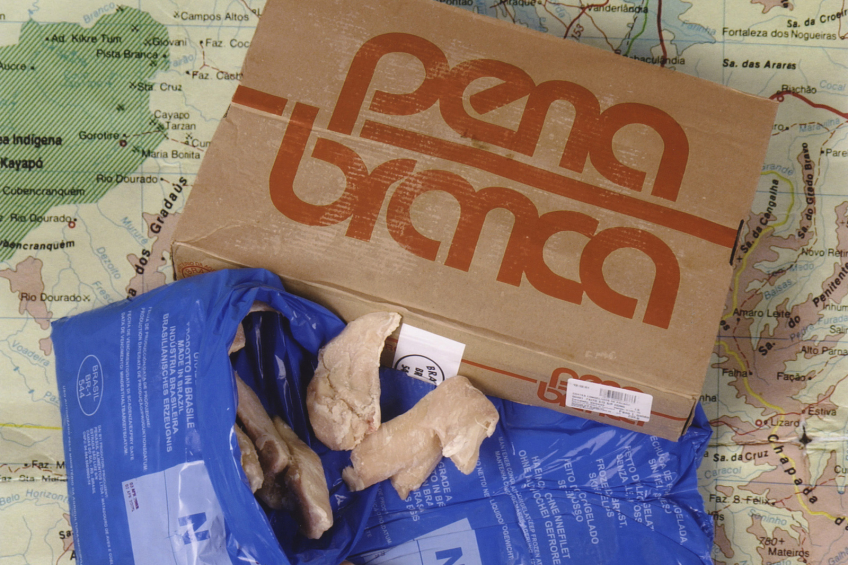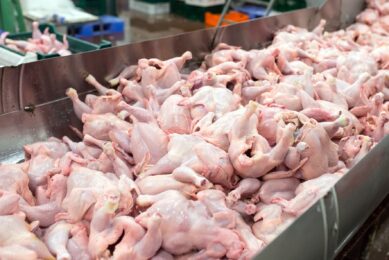China discovers Brazil

China’s ties with Brazil are becoming more and more close. It is not restricted to food import and the acquisition of land, but also to invest substantially in agribusiness.
Last year 30% of Brazil’s agribusiness was exported to China. It is the biggest importer of Brazilian soy, but also the import of Brazilian meat is growing rapidly. This year it is the second largest importer of beef and poultry meat and the third largest importer of pork. Although soy accounts for the bulk, the export of other products is also growing strongly. Within a year after opening the Chinese market for beef, this export’s value is already €700 million. The value of poultry meat accounts to €312 million in the first 5 months of this year. In that period also 29,000 tonnes of pork with a total value of €52 million was exported to China.
China invests in Brazil
However, the Chinese have also discovered Brazil, as somewhere to invest and produce. The Chinese government controlled company Cofco Agri is China’s largest grain merchant and is increasingly gaining a foothold in Brazil. The demand for crops for food and feed is so high, the country wants to control the production and trade of these crops. Besides soy this concerns corn, wheat and sugar.
Chinese firms exporting 45% of soya out of Brazil
During the past year Chinese trade firms, Cofco among others, were responsible for 45% of the Brazilian export of soy, soy meal and corn. This makes China less dependant on traditional trade companies such as ADM, Bunge, Cargill and Louis Drefus. Cofco, which is active in logistics, processing and trade, is looking for strategic partners in relation to food security. In March 2014, the Dutch grain merchant took over Nidera and acquired a majority interest in the Hong Kong based Noble Group in April.
Hunan Dakang also looking to expand to Brazil
Also Hunan Dakang, part of Pengxin Group, one of China’s largest companies in agribusiness, wants to expand its activities to Brazil. A few years ago the enterprise transformed from solely pig-fattening to a conglomerate in the area of mainly animal foods. It has a shareholding in an enterprise in the place Lucas de Rio Verde in the Brazilian state Mato Grosso. In April the Brazilian grain merchant and manufacturer of biodiesel was taken over for €260 million. Fiagril has only been in the grain trade for a decade and even shorter in biodiesel, seeds, fertiliser and logistics. In 2015 it traded about 3 million tonnes of grain and invested substantially in the construction of storage and particularly logistics. The focus is on transport per ship to ports situated in the north of the country. A company that fits nicely with the plans of China, concluded Rabobank as well.
Not just land anymore
Years ago Chinese companies mainly acquired land, but the current policy of the Chinese foreign investment agency (OFDI) is no longer geared towards this. The focus is on investments and take-overs in the entire chain, in order to achieve control over supply flows and prices. Nowadays there are also Chinese companies active in dairy, poultry, grains, sugar, machinery, pigs and child nutrition.
During the recent meeting of the G-20 in China, the governments of both countries have concluded a Partnership and Cooperation agreement for the creation of a Chinese – Brazilian investment fund with a value of €900 million. The Brazilian objective is an improvement of the services in the agricultural industry, infrastructure, storage, logistics and ports. Chinese companies will particularly benefit from better investment conditions. The Brazilian Minister of Agriculture, Blairo Maggi, expects the Brazilian share of the global agricultural export to rise by 10% over the coming five years, as a result of this agreement.
Join 31,000+ subscribers
Subscribe to our newsletter to stay updated about all the need-to-know content in the poultry sector, three times a week. Beheer
Beheer











 WP Admin
WP Admin  Bewerk bericht
Bewerk bericht